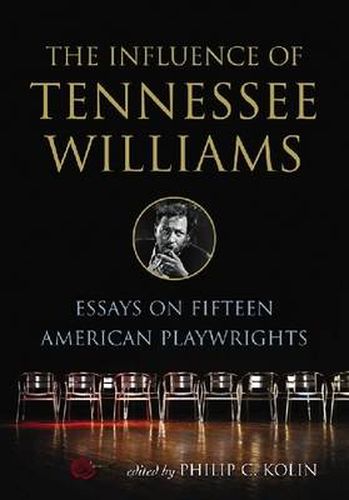Readings Newsletter
Become a Readings Member to make your shopping experience even easier.
Sign in or sign up for free!
You’re not far away from qualifying for FREE standard shipping within Australia
You’ve qualified for FREE standard shipping within Australia
The cart is loading…






This title is printed to order. This book may have been self-published. If so, we cannot guarantee the quality of the content. In the main most books will have gone through the editing process however some may not. We therefore suggest that you be aware of this before ordering this book. If in doubt check either the author or publisher’s details as we are unable to accept any returns unless they are faulty. Please contact us if you have any questions.
The author of
A Streetcar Named Desire
and
Cat on a Hot Tin Roof
was never shy about drawing on his personal and family drama for stage material. This collection of 15 essays examines how Williams’ confessional style influenced a diverse range of playwrights, both contemporaries and those writing for modern theater. Critical comparisons to William Inge, Edward Albee, David Mamet, Tony Kushner, Suzan Lori-Parks and others reveal this effect, with a special study of African-American theater. This title features an original interview with Albee on instances where Williams specifically influenced his works.
$9.00 standard shipping within Australia
FREE standard shipping within Australia for orders over $100.00
Express & International shipping calculated at checkout
This title is printed to order. This book may have been self-published. If so, we cannot guarantee the quality of the content. In the main most books will have gone through the editing process however some may not. We therefore suggest that you be aware of this before ordering this book. If in doubt check either the author or publisher’s details as we are unable to accept any returns unless they are faulty. Please contact us if you have any questions.
The author of
A Streetcar Named Desire
and
Cat on a Hot Tin Roof
was never shy about drawing on his personal and family drama for stage material. This collection of 15 essays examines how Williams’ confessional style influenced a diverse range of playwrights, both contemporaries and those writing for modern theater. Critical comparisons to William Inge, Edward Albee, David Mamet, Tony Kushner, Suzan Lori-Parks and others reveal this effect, with a special study of African-American theater. This title features an original interview with Albee on instances where Williams specifically influenced his works.